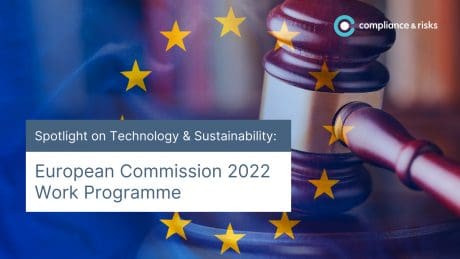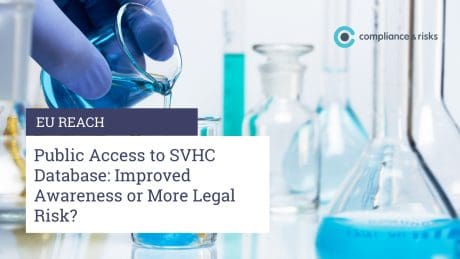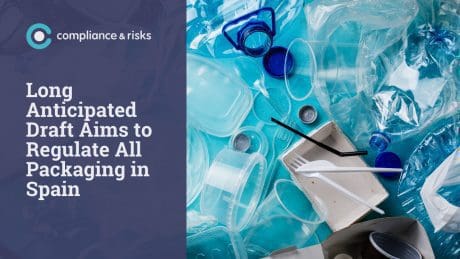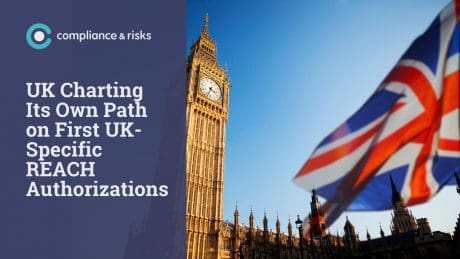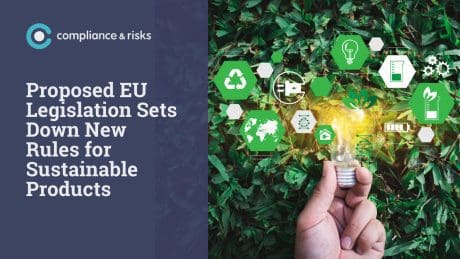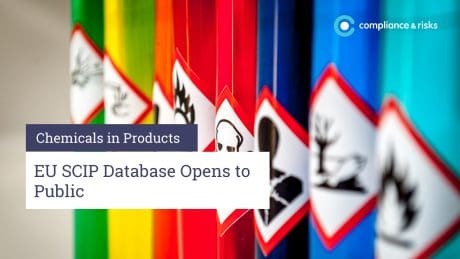
Status of Ecodesign Preparatory Studies for Product Groups Identified as Potential Regulatory Targets


- Have a significant volume of sales and trade in the EU, indicatively more than 200,000 units per year;
- Have a significant environmental impact in the EU; and
- Present significant potential for improvement in terms of its environmental impact without entailing excessive cost.
If, indicatively, a product group fulfils this criteria and is recognized by the Commission as a potentially worthy regulatory target, an ecodesign preparatory study will be undertaken. Each study follows a defined methodology called MEErP: the Methodology for the Ecodesign of Energy-related Products. This entails completing various tasks, as follows:
- Task 0 – Quick Scan (Optional). This is optional to Task 1 in the case of large or heterogeneous product groups, where it is recommended to carry out a product screening to begin with.
- Task 1 – Scope. This includes defining the product group and researching and summarizing existing product standards and any other legislation that may be applicable in addition to ecodesign.
- Task 2 – Markets (volumes and prices).
- Task 3 – Users (product demand side).
- Task 4 – Technologies. This is an assessment of the product supply side, including both best available technology and best not yet available technology.
- Task 5 – Environment and economics. Essentially, this is a base case life cycle assessment and exercise in life cycle costing.
- Task 6 – Design options.
- Task 7 – Scenarios (Policy, scenario, impact and sensitivity analysis).
What, then, are the seven indicative product groups and what is happening with regard to each? The table below provides a summary. With only a year to go before the present Working Plan comes to an end, one might expect ecodesign preparatory studies to be well underway in each instance, if not yet complete. This is not quite the case, however, with studies for three of the seven indicative product groups yet to start. It will be interesting to see what further headway is made between now and the end of 2019.
| Indicative Product Group | Study Status | Start Date | End Date | Summary of Work Completed to Date | Contractor(s) | Study Website |
| Building automation and control systems | Scoping study completed | October 2017 | July 2018 |
An initial study covering Tasks 0, 1 & 7 of the MEErP was performed by the contractors resulting in an 89-page report into the scope of the product group. The report identified and described relevant systems before going on to consider lifecycle environmental impacts and what might be achievable through future ecodesign requirements. While the report is publicly available (on the study website) it does not yet appear to be publicly stated whether a full ecodesign preparatory study will now be pursued. |
VITO and Waide Strategic Efficiency |
Click here |
| Electric kettles | Yet to start | Pending | Pending | No work completed as yet. | TBC | TBC |
| Hand dryers | Yet to start (anticipated autumn 2018) | Pending | Pending | No work completed as yet. | Awarded to ICF | TBC |
| Lifts | In progress | Believed to be in last quarter of 2017 | Anticipated as April-May 2019 | Tasks 1-5 completed in draft with reports shared with registered stakeholders (and published on the study website). Stakeholder input now being sought for work towards Tasks 6 and 7. The contractors’ intention is to publish reports for all tasks (1-7 inclusive) on the study website by 14 February 2019. Two stakeholder meetings have been held; a third meeting is planned for 11 March 2019. | Fraunhofer ISI; VITO; ISR University of Coimbra; and Waide Strategic Efficiency |
Click here |
| Solar panels and inverters | In progress | October 2017 | Anticipated late summer/ autumn 2019 | Tasks 1-3 completed in draft with reports published on the study website. The first stakeholder meeting was held in June 2018; draft meeting minutes can be found on the study website. A second stakeholder meeting is likely to take place in December 2018. | Joint Research Centre (Dir. B); VITO; and IMEC |
Click here |
| Refrigerated containers | Yet to start | Pending | Pending |
No work completed as yet. _____________________________________________ |
TBC | TBC |
| High pressure cleaners | In progress | Believed to be in last quarter of 2017 | Anticipated late 2019 | Task 1 completed in draft with the relevant report published on the study website. First technical working group meeting was held in May 2018; a questionnaire was launched to survey professional high pressure cleaner manufacturers on product technology in use plus environmental issues (e.g. treatment at end of life). | Joint Research Centre (Dir. B); Viegand Maagøe; and Intertek |
Click here |
